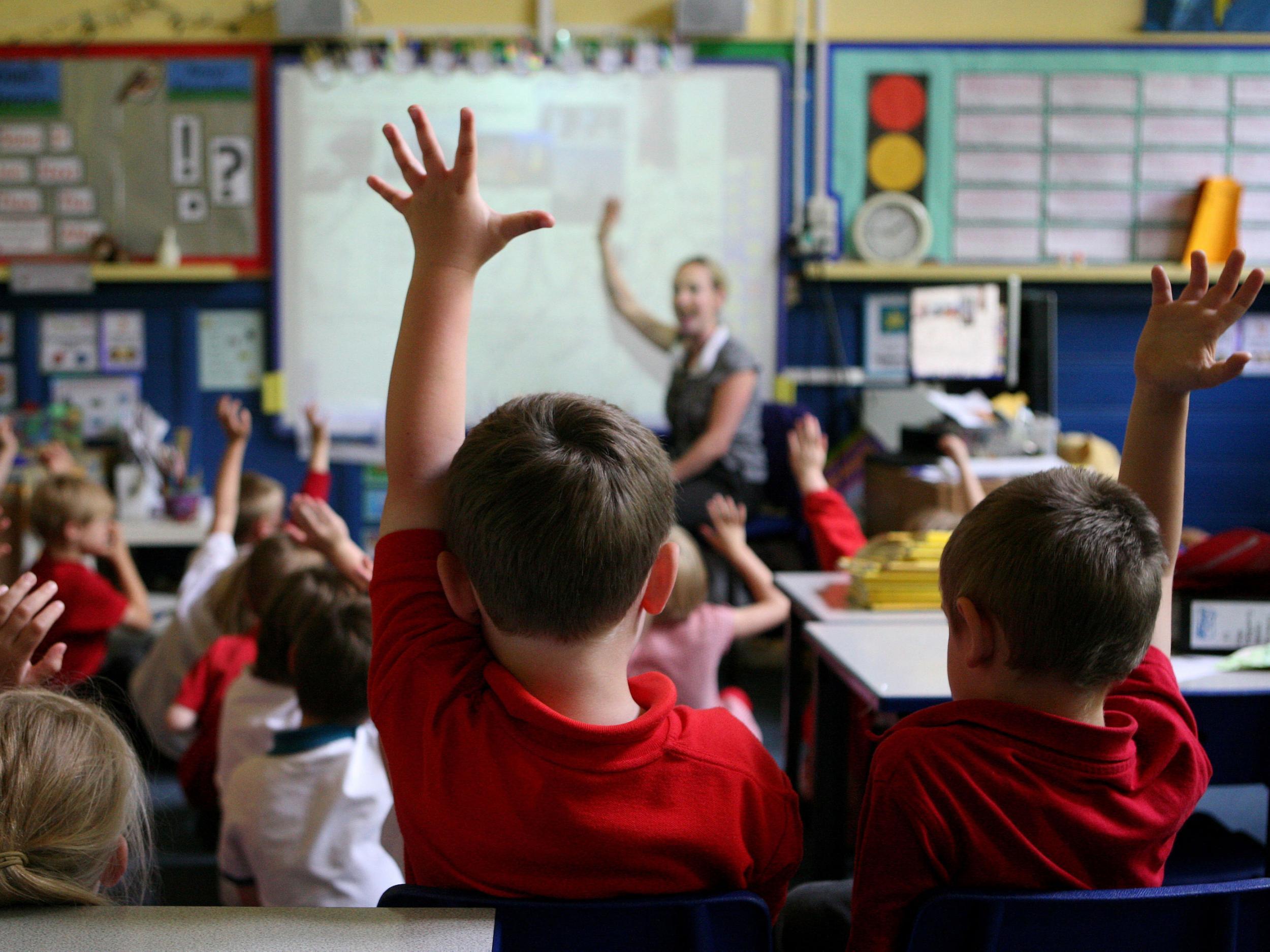More teachers leaving profession than joining for second year running
Latest school workplace census figures fuel industry-wide concerns over a growing teacher recruitment crisis

Your support helps us to tell the story
From reproductive rights to climate change to Big Tech, The Independent is on the ground when the story is developing. Whether it's investigating the financials of Elon Musk's pro-Trump PAC or producing our latest documentary, 'The A Word', which shines a light on the American women fighting for reproductive rights, we know how important it is to parse out the facts from the messaging.
At such a critical moment in US history, we need reporters on the ground. Your donation allows us to keep sending journalists to speak to both sides of the story.
The Independent is trusted by Americans across the entire political spectrum. And unlike many other quality news outlets, we choose not to lock Americans out of our reporting and analysis with paywalls. We believe quality journalism should be available to everyone, paid for by those who can afford it.
Your support makes all the difference.More teachers are leaving the profession than joining, latest government data has revealed, fuelling concerns the crisis in teacher recruitment and retention is worsening.
The data, which gives details of England’s state school workforce as of November last year, shows the rate of qualified teachers entering the profession is at its lowest in five years.
The number of qualified teachers entering the classroom has also dropped for the second year running, with over 2,600 more teachers having left the profession than joined in 2016.
Department for Education data also shows a rise in the number of senior staff members taking home six-figure salaries - with around 1,300 head teachers handed salaries worth at least £100,000 in 2016.
Some 700 headteachers - including executive heads (such as those responsible for more than one school) were earning between £100,000 and £109,999 at the end of 2016, while a further 600 were taking home pay packets worth over £110,000.
Classroom teachers from all types of state school have seen their wages rise by around £500 in a year, with average pay now standing at £35,100, compared to £34,600 in 2015.
Commenting on the figures, Chris Keates, general secretary of the NASUWT teaching union, said: “It is deeply concerning to see the number of headteachers on six-figure salaries increasing while teachers' pay is being held back and is not keeping pace with inflation.
”These statistics should provide a wake-up call to government to end the practice of schools paying headteachers what they want whilst paying teachers what they can get away with.
“School leaders have highly responsible and important jobs and their salary should reflect this. It should be remembered that there are headteachers who in times of massive pressures on the system have not raised their salary at the expense of their staff.”
Earlier this year, Education Select Committee MPs warned shortages in England had reached a “crisis” point, criticising the Government failing to come up with a coherent plan to tackle a lack of staff in core subjects such as sciences and maths.
The shortage is set to worsen with a pupil numbers at secondary schools expected to spike by more than 500,000 to 3.3 million by 2025.
The latest statistics also show the total number of entrants to teaching stood at 43,830 in 2016, down from 45,120 in 2015, and 45,290 in 2014. In 2013, the figure was 45,260.
At the same time, the data shows the total number of qualified teachers leaving the profession has fallen to 42,830, from 43,370 the year before.
Shadow education secretary Angela Rayner, said: “These figures reveal the scale of the crisis the Tories have created for our schools.”
She added: “This is a damning verdict on seven years of failure from Conservative governments, and without urgent action on teacher recruitment and retention, a generation of children will pay the price for that failure.”
Additional reporting by PA
Join our commenting forum
Join thought-provoking conversations, follow other Independent readers and see their replies
Comments